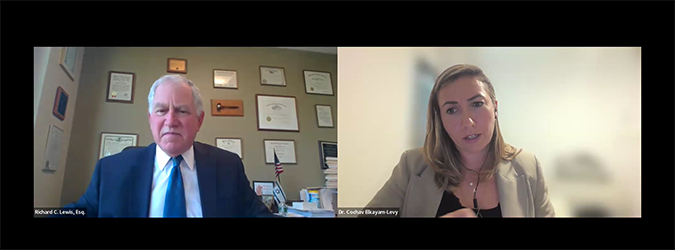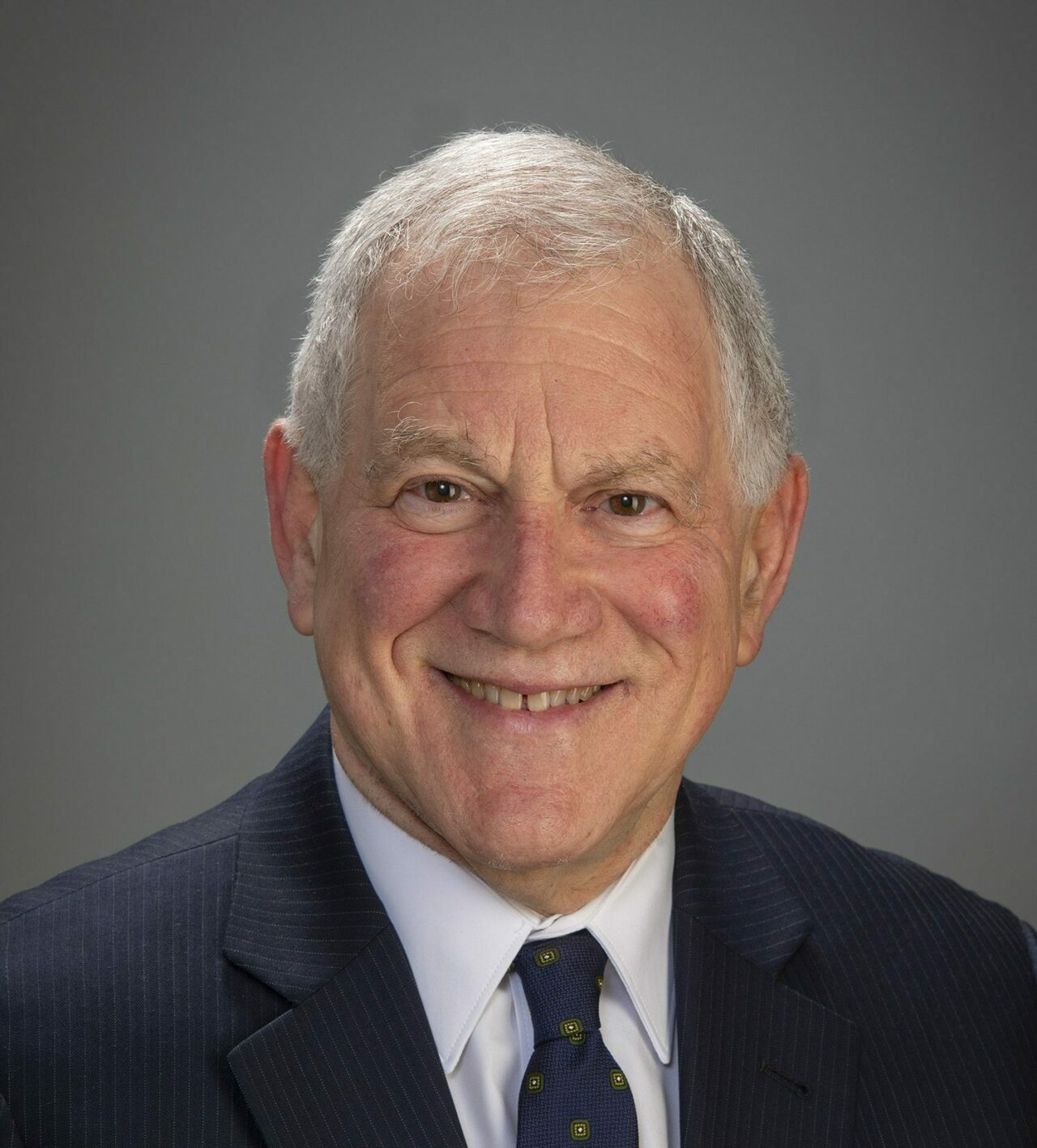Engaging Leaders in the Deeply Rooted, 21st Century Challenges as I Travel Around the State
11.4.2023
Dear Colleagues:
You have heard me say that I have chosen ‘Standing Up for the Practice of Law’ as the theme of my presidency and to that end, I have spent the past 150 days working on issues that confront our profession, our judiciary, and our educational system. I traveled around the state and beyond, attending so many events that I have lost count. I met with affinity groups and local bar associations. I have met with the Chief Judge and Chief Administrative Judge and have joined them with other distinguished members of the judiciary on a panel that listened to testimony from a dozen civil legal services organizations. I met with young lawyers. I want to add that Domenick, Susan, and Taa have also been very busy attending events, as has our Executive Director, Pam.
At the Third Department’s Bar Admissions Ceremony this past spring, I heard young lawyers’ growing concerns about student-loan debt, work-life balance, and gender equity. We need to address their concerns because they are our leaders of tomorrow and the ones who will promote our values going forward.
I have also met with leaders from Hong Kong, Pakistan, Argentina, Israel and Great Britain and multiple other states.
We must tackle the issues that confront us as today’s leaders.
We are faced with deeply rooted, 21st century challenges that threaten the rule of law, which is why our Task Force members are working diligently on such matters as hate crimes, anti-Asian hate, antisemitism, homelessness, equal access to education, dignity in end stages of life, and an ever-evolving technological environment. In addition, we are trying to confront the issue of civility and debate which is essential to Democracy.
Our Task Force on Advancing Diversity’s substantive report was turned out in a little more than a month following the Supreme Court’s decision on affirmative action. We actually began working on it prior to the Decision. We are seeking your approval of this report today. It recommends that higher education institutions as well as businesses, law firms, and the courts, take a holistic approach in their admission processes with a focus on how an applicant enhances their goals and values and defines the post Harvard/N.C. landscape for the courts, businesses, law firms, and institutions of higher learning to move forward in pursuing DEI programs.
We were fortunate to get input from experts throughout the country and will continue to monitor the landscape to determine what our response should be as the inevitable lawsuits to follow are filed challenging diversity programs. I am so thankful to Jeh Johnson, Brad Karp, and Loretta Lynch for chairing this Task Force.
I have met with New York’s Chief Judge Rowan Wilson to talk about his priorities, which include making sure that tenants and landlords in Housing Court are represented. He wants to provide incentives for lawyers who take on housing cases so that tenants – especially those who live below the poverty line – may stay in their homes. We intend to work with him to achieve the fairness to both tenants and landlords.
I also met with Chief Administrative Judge Joseph Zayas who will address us this morning. This has laid the foundation for further collaboration regarding court rules, e-filing in all courts, including District Courts in Nassau and Suffolk counties, and other issues that impact lawyers.
As you probably know, the 2023 legislative session was one of our most successful in memory. We accomplished a great deal by advocating for the practical concerns of lawyers. We lobbied legislators and the governor to raise the pay of court-appointed 18-B attorneys for the first time in nearly 20 years and our hard work paid off. We continue to advocate for future financing of this program. We also urged the Legislature to repeal antiquated Judiciary Law Section 470, which requires admitted New York practitioners who reside out-of-state to maintain a physical office within state boundaries. The bill passed the state Senate and Assembly, and we are continuing to encourage the governor to sign it. We also pushed for passage of the Clean Slate Act and the state Equal Rights Amendment, both of which were approved by the Legislature.
We succeeded in getting Bill S5162/A5772 passed and signed by the governor. The bill removes barriers to New Yorkers in civil, housing, and family court matters allowing litigants in these cases to swear to a statement without having to have the statement notarized. This is a win for access to justice because it helps urban New Yorkers who might not be able to take off from work to get a document notarized, suburban New Yorkers who might have to spend significant time riding on public transportation to locate a notary, and rural New Yorkers who might have to travel long distances in areas where notaries are difficult to find.
My travels took me to Denver this past August to attend the ABA Annual Meeting where we, along with the California Lawyers Association, introduced a resolution to urge local and state governments and the federal government to forgive some or all of the student loans of young lawyers who practice in rural areas. I am happy to report that our resolution was overwhelmingly approved and adopted as ABA policy. It is our hope that our lobbying efforts on behalf of young lawyers will be successful, and that loan forgiveness will incentivize young lawyers to work in rural areas where it is now extremely difficult to find a lawyer.
Just this past week, I had the honor of testifying on behalf of our Association before the New York State Commission on Legislative, Judicial, and Executive Compensation Public Hearing – and at a hearing before the Senate Standing Committees on the Judiciary and on Children and Families.
I shared our support for increased judicial compensation because a properly funded judiciary is the cornerstone of a democratic society, and the operation of the justice system depends upon the confidence of all involved parties. Salary stagnation is an impediment to retaining qualified and experienced judges and attracting the best to the bench. In short, the justice system’s ability to function properly depends upon the judges who serve it.
My testimony to the Senate Committees on Judiciary, and Children and Families reiterated what our published reports have said – that there is a myriad of challenges that need to be addressed for an under-resources and overburdened court system. We need more judges, we need to update the court’s infrastructure, and we must ensure that our judges and staff are well-trained in e-filing systems, digital technology, and virtual proceedings. And, we need to keep our courts safe.
Our Annual Meeting is approaching.
I am looking forward to seeing you at the New York Hilton Midtown for a full slate of robust in- person discussion, professional development, and the opportunity to set aside being adversaries in the courtroom and at the negotiating table, and engage each other as partners and friends.
The Presidential Summit will focus on the impact that A.I. is having and will continue to have on our profession. We will hear from two world renown experts: Bridget Mary McCormack who is President and CEO of the American Arbitration Association-International Centre for Dispute Resolution, and past Chief Justice of the Michigan Supreme Court, and Katherine Forrest who is a Partner and Co-Chair of the Digital Technology Group at Paul, Weiss and former District Court Judge in the Southern District of New York. In addition, members of our own Task Force on A.I., chaired by Vivian Wesson, will discuss the ever-changing issues surrounding A.I.
Our Task Force on Medical Aid in Dying is addressing a controversial topic, and we are looking for legislative solutions. We are looking at this subject in a balanced way, taking all stakeholders’ concerns into consideration.
Legislators are seeking our recommendations on this issue and on regulatory oversight of A.I., which our Task Force on Artificial Intelligence is discussing.
In May, we will be hosting a Civics Convocation at the Bar Center that is shaping up to be an exceptional event that will include judges, attorneys, teachers, and students who will participate in a vigorous discussion about the future of our democracy. We need to zealously guard our democratic principles to ensure that we are teaching them to the next generation. We cannot accomplish that unless we engage in civil debate.
I have been consulting with our Task Forces on Combating Antisemitism and Anti-Asian Hate, A.I., Medical Aid in Dying, and Homelessness and the Law. Homelessness continues to grow as a national disgrace, and I am looking forward to seeing the report of our Task Force.
The other tragedy that we are dealing with is the issue of antisemitism, which has become overt and dangerous, in our country and throughout the world, following the barbarism that occurred on October 7th in Israel. As your President, I immediately condemned that barbarism, and disregard for human life. As leaders in the legal community, we have an obligation to strongly and directly condemn this hatred and evil and continue to urge respect for the rule of law and the sanctity of human life throughout the world.
I have been working closely with our Task Force on Combating Antisemitism and Anti-Asian Hate and thank them for their guidance in the strong public statements we have made.
In light of the atrocities we have seen in Israel this past month, I have called upon our Task Force to redouble its efforts and produce an interim report and recommendation by the next meeting of this House, so that the principles that we all firmly believe can become policy of our Association. Even in the darkest days, and these recent days have been very dark for all humanity, our Association should be a clarion voice for our profession and the public. And I call upon our Task Force to rise to that occasion and provide us a clear, strong, thoughtful report and policy that we can proudly bring forth to the world. I am confident they will do so with all necessary deliberation and that this great House will support it.
In closing – there is plenty of work to do. However, nobody said it was going to be easy. As the great Muhammad Ali once said: “The fight is won or lost far away from witnesses – behind the lines,” and I could not be more grateful for the support of those working behind the lines; our Executive Director Pam McDevitt, and all the NYSBA staff who have been so dedicated to me and the good causes of our great Association.
Thank you.






